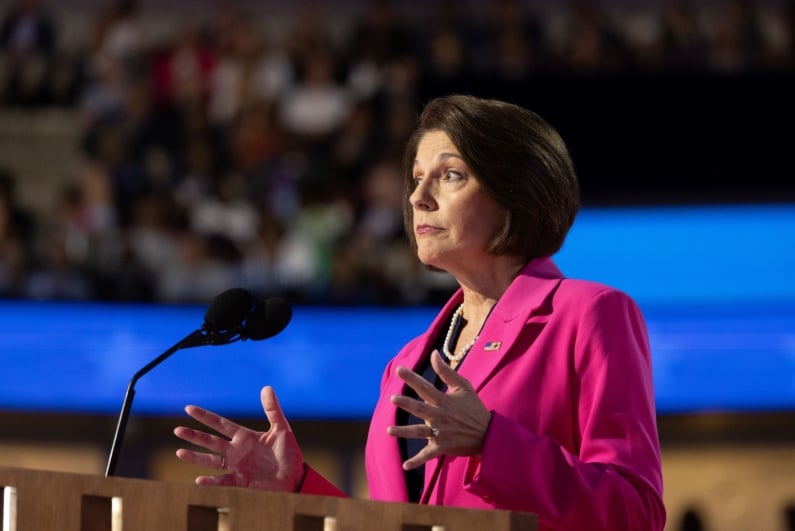At different stages
The US has the biggest regulated gambling market in the world today and it still has plenty of room to grow. More than 30 states now have legal sportsbooks up and running, while iGaming platforms are live in seven of them. These markets will generate an estimated $26bn in combined revenue by 2028, so it is big business.
The states themselves benefit handsomely, especially those with the highest tax rates, such as New York. Sportsbooks there contributed $727m in tax revenue just last year. Meanwhile, although operators are spending huge sums to try to acquire customers and market share in each state, profits are now on the horizon.
addiction rates don’t appear to be getting any better
One reason that lawmakers typically back legal online gambling legislation is to take business away from black market platforms and better protect consumers. Despite this argument, addiction rates don’t appear to be getting any better.
Traffic for the National Council on Problem Gambling (NCPG) helpline, a service that provides help for those struggling with gambling addiction in the US, rose 21% year-on-year in their last reported month (March 2023). The organization said it expects these numbers to continue to grow as more states embrace legalization.
On the other side of the pond, the UK market is decades old and has gone through a lot of the teething problems that we now see in the US. It has learned many lessons the hard way and now has a regulator that focuses on cultivating a safe gambling environment. What are some things that the US authorities could learn?
The issue with the US
One of the big issues with the US online gambling market is that every state puts its own spin on proceedings. While the core regulations are usually quite similar, they often have different rules about the types of bets people can place and the requirements for operators.
On one hand, stakeholders see the ever-expanding US gambling sector as a gold mine. Operators don’t want more restrictions in what is already a very competitive market as changes would likely hurt their bottom line. Governments want to cash in too and many think that too many restrictions will lead to people using black market platforms or going across state lines to boost the coffers of their neighbors.
America is also the land of the free, so excessive curtailments go against what many believe in. Even traditionally conservative states like Texas and Alabama are now exploring gambling expansion.
the lack of federal oversight of the sector causes issues
However, on the other side, many are concerned that the rapid growth of the US gambling sector is leaving consumers at risk of addiction. While the US government might have every intention of protecting these vulnerable gamblers, the lack of federal oversight of the sector causes issues when trying to put new policies into place.
In contrast, the UK market is all unified under a single regulator – the UK Gambling Commission (UKGC), which makes it far easier to implement new changes. Just take the recent UK government’s decision to implement a £2 ($2.54) spin limit on online slot machines last month for instance. The UKGC can now ensure that is implemented by operators across the board, whereas this would require collaboration from a regulator in each state in the US.
Funding important programs
UK operators have also paid a voluntary annual levy for years to help fund gambling harm-related programs. The recent white paper on the region’s gambling legislation aims to secure this contribution even further, proposing a 1% mandatory levy on the gross yield of online operators.
No such levy applies in the US market to provide money for underfunded problem gambling programs. It is typically the state regulator that will contribute a fixed payment or a small percentage of tax revenue each year. For example, 2% of the tax intake in Ohio goes toward battling these types of issues but this fluxuates from state to state.
US operators do have to pay 0.25% of all wagers to the federal government as a sports excise tax, which added up to about $235m in 2022. None of this money currently goes towards problem gambling services, however. A new proposal in Congress aims to change that, directing half of all this revenue to these types of programs – a welcome change for those concerned with problem gambling issues and one that will bring the country more in line with the UK.
Mass self-exclusion
One of the biggest changes that the US sector could make is introducing a countrywide mass self-exclusion program. All UKGC-licensed platforms have to be a part of GAMSTOP, which allows a person to instantly exclude themselves from any gambling sites. This is a non-reversible ban and can remain in place anywhere from six months to five years.
Addicts in Nevada and Colorado have to block themselves from each individual operator
It is extremely easy to do, with the GAMSTOP website allowing you to exclude in just minutes. While certain US states run self-exclusion programs, as do individual operators, these often aren’t wide-ranging enough. Addicts in Nevada and Colorado have to block themselves from each individual operator rather than doing this all in one go.
Someone who is on a ban list in one state can also usually go into a neighboring jurisdiction and continue betting. A nationwide self-exclusion program covering all licensed platforms would solve this issue, although this would likely require an intervention from the US Congress.
Restricting advertising
It’s difficult to turn on a sports broadcast these days in US and not see pro-gambling messages. A big area of focus in the UK is restricting the prevalence of these messages during live events.
While field-side advertising hoardings displaying sportsbook logos are still permitted, a ban is on the way that will prevent English Premier League soccer teams from having gambling sponsors on the front of their shirts from the start of the 2026/2027 season. Celebrities and athletes also cannot promote gambling companies if they might strongly appeal to younger people.
A “whistle-to-whistle” ban is already in place that prohibits gambling ads five minutes before the start of a sporting event and up to five minutes after its conclusion when the fixture is taking place before 9pm. Proponents of this action deemed it likelier that more children will watch sporting events during the day rather than later at night.
broadcasts are filled with segments talking about the best bets to make
Current US sports broadcasts are filled with segments talking about the best bets to make, in addition to ads promoting sportsbooks. During the recent Super Bowl, the most-watched television broadcast every year in the country, several operators ran ads promoting their offerings, costing about $7m for just 30 seconds of footage.
Introducing a similar type of “whistle-to-whistle” ban in the US could go a long way to protecting younger people from a constant bombardment of pro-gambling messaging when watching their favorite sports.
Payment restrictions
In April 2020, the UKGC banned gamblers from using debt-accumulating payment methods like credit cards to fund their accounts. Proponents argued customers should only spend money they have rather than going into the red, racking up thousands of pounds of debt. The results are positive so far, with the regulator not seeing any uptick in illegal money lending or people moving to black market sites.
could help prevent people from spending more than they should
While a few US states like Massachusetts have a similar ban in place, this is not the case for the most part. Making this change could help prevent people from spending more than they should.
Affordability checks are a hot topic in the UK at the moment too, with the white paper calling for even stricter thresholds. Operators monitor the account activity of users and take action if they are displaying certain high-risk markers. Platforms will curtail betting until the person can show that they can afford their level of expenditure.
The UK authorities are looking to get even more aggressive with this monitoring, proposing a check if a person has a net loss of over £125 ($160) in a month or £500 ($641) in a year. While this might be a bit extreme for US operators, having state regulators put more responsibility on operators to look out for suspicious behavior could help people who are struggling to control themselves.




